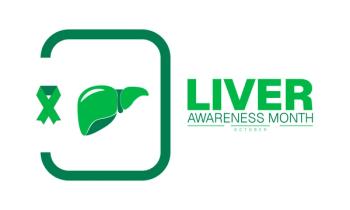
Clinical
Latest News

Latest Videos

More News

Panelists discuss how ARNIs like sacubitril-valsartan provide superior outcomes compared with ACE inhibitors in HFrEF (20% reduction in cardiovascular events, 16% mortality reduction), with broad FDA approval across the ejection fraction spectrum and recent generic availability improving cost-effectiveness, though ACE inhibitors and ARBs remain viable second-line options when ARNI is not accessible.

Multidrug combinations may counteract the role of cytokines in drug resistance, a new review article explains.

Tumor-first multigene testing boosts diagnostic accuracy, minimizes duplication, and aligns with professional society recommendations for integrated sequencing.

Artificial intelligence models may advance clinical trial design and enrollment to improve trial success and patient outcomes.

Liver Awareness Month raises awareness of liver disease causes, risks, symptoms, and prevention, highlighting individual actions and policy efforts.

The FDA approved revumenib for relapsed/refractory (R/R) acute myeloid leukemia, offering a new targeted therapy option for patients with NPM1 mutations.

Increases in global temperatures may exacerbate cardiovascular mortality risk in older patients with heart failure.

This timeline highlights 5 key dates in September when the FDA approved treatments for cancers, dermatologic conditions, and rare diseases.

Heart rate variability (HRV) biofeedback may be a potential intervention for patients with coronary artery disease.

Elinzanetant offers a promising alternative to hormone therapy for women seeking relief from menopause symptoms, said JoAnn V. Pinkerton, MD.

Panelists discuss how overcoming resistance to EGFR TKIs requires next-generation inhibitors and more individualized treatment strategies.

Panelists discuss how EGFR mutation profiling guides targeted first-line NSCLC therapy and shifts care toward precision medicine.

A novel combination therapy enhances the effectiveness of proteasome inhibitors against acute myeloid leukemia (AML), improving survival rates in preclinical models.

Venetoclax plus bortezomib and dexamethasone improved PFS in relapsed/refractory multiple myeloma, especially in patients with BCL2high disease.

A targeted therapy combination achieved complete remission in a CAR-positive PTCL patient post-CAR T-cell therapy for multiple myeloma.

Incorporating tools that gauge social determinants of health can improve patient access to cancer care, explained Susan Escudier, MD.

Dedicated COPD respiratory therapists can improve inhaler use, ensure adherence, and bridge care transitions, explained Megan Dulohery Scrodin, MD.

COVID-19–related work absences remain elevated post pandemic, especially in high-exposure jobs, highlighting lasting labor market impacts.

Assessing all available nonhormonal and hormonal therapies for vasomotor symptoms helps empower women to make informed decisions, said Lee Shulman, MD.

A session held during the CHEST 2025 Annual Meeting focused on the North American guidelines for treating bronchiectasis.

CT scans can play a role not just in diagnosing but also in monitoring non–cystic fibrosis bronchiectasis management, explained James D. Chalmers, MD.

Panelists discuss how efficacy, safety, quality of life, and patient-specific factors drive selection among third-line therapies in metastatic colorectal cancer.

Panelists discuss how data from FRESCO-2 and other trials position fruquintinib as a strong third-line option compared with regorafenib and FTD/TPI.

Panelists discuss how venetoclax has revolutionized AML treatment by providing effective therapy options for older patients with previously untreatable disease, enabling higher response rates, longer survival, and increased transplant eligibility while transforming the treatment landscape across all age groups.

Panelists discuss how prescription digital therapeutics will ideally be used in combination with traditional medications to provide optimal outcomes, particularly for patients hesitant about medication or those in early stages of illness where diagnostic certainty may be evolving.













